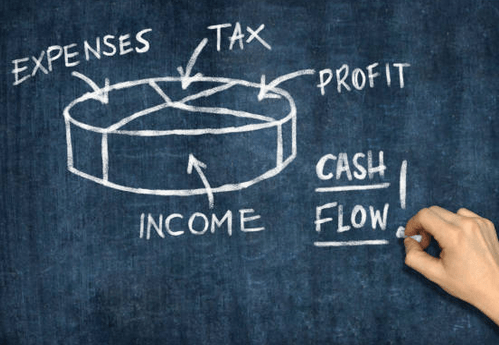The Toronto housing market has stabilized a little over the years and is growing at a good rate. Buying and selling of living suites is an activity that goes on in the industry at all times. Purchasing a real estate property and then renting it out has always been a popular choice amongst investors for earning some money. This enhances their cash flow in hand.
In today’s times, investors in the industry prefer condos as rental properties that they can put on rent. This is because of a number of exciting factors. For instance, condos are reasonably priced when compared with single townhomes. Also, the maintenance is more comfortable in case of elements.
Through this blog, you will become more familiar with many other factors which impact this decision of the investors to purchase condos and improve their cash flow, expect some rental income in return out of it, have better finances and much more! Are you wondering how to go ahead with the entire procedure? Keep reading to find out everything in detail!
Why are condos a popular choice of investments for rental purposes?
Investing in real estate is a productive activity in most cases. Therefore, the number of investors in this industry are quite high. Even in the sector, the market is biased towards buying condo suites that investors can lease out after buying. Here are the significant reasons as to why it is a popular choice:
Less repairs to handle
You will be purchasing a new unit, so the condominium is going to be new and thus, have all the facilities. Therefore, there are not really going to be any repairs to take care of. Repairs are a big headache because they take up money as well as time.
Maintenance and upkeep of the property is easier
When you purchase any of the condos, you have to pay the condo fees. This condo fee covers up the upkeep as well as maintenance of your real estate property. Therefore, you don’t have to spend any more money further to maintain your condos.
 High demand in the market
High demand in the market
Urbanization has hit the Toronto market, and there are young professionals, a family, etc., moving to major urban locations so as to enhance their ease of commuting to their workplace because of closeness. Therefore, living in condos is in high demand these days.
Therefore, giving out the property as a rental one becomes much easier. Also, a family finds it convenient because of the amenities available for each family member.
Changing choices of the people
Gone are the times when people preferred massive properties with a significant amount of space for different activities. Nowadays, the choices of people are changing. These days, people prefer staying in small living spaces. The idea of compact spaces is in trend. Therefore, more and more people like taking condos for rent.
 Exciting amenities to attract renters
Exciting amenities to attract renters
Condos are not stand-alone homes. They are generally a part of a community with new facilities. The most basic facilities include a fitness centre, parks, play area, lounge, swimming pool, etc. These amenities are better at attracting more number of renters for your property.
Therefore, it becomes easier to put the apartment out for rental purposes. The increase in demands of tenants can be seen, and this increase can be dealt with as the amenities are interesting and beneficial.
Better management
There is a designated condo board that gets elected for the entire development. Therefore, your personal interests are also catered to jointly by this elected board of members. Moreover, they help in the management of the whole building too. Thus, your worries are significantly lessened.
Resale demand
The liquidity in case of condos is high when compared with single homes. Therefore, if you ever feel in future that you wish to sell it off, you can do so easily because of the increased demand. That is, reselling of condominiums in future is comparatively more straightforward.
Costs of purchase
The area of single townhomes is massive as compared to condos. Therefore, the costs involved in the purchase are also high. In the case of these units, the cost of purchase also comes down as they are compact.
The costs can vary depending on the location of the units, though, and some of them can be quite expensive choice.
 Condo: A fantastic real estate investment
Condo: A fantastic real estate investment
To make an investment in real estate is as it is a smart decision. Choosing one of the condos for investing is an even more excellent decision! There are quite a few calculations involved when you have to consider buying a property.
These calculations determine the actual income that you can expect in return by leasing a unit. Yes, there are different expenses like insurance, mortgage, maintenance, etc. involved that do hamper the rental income directly as well as indirectly that you can get from the property.
Thus, determine how expensive an affair it is for you. There are a lot of finances that need to be covered for.
Here are a few intricate details pertaining to finance that you must be aware of while calculating the overall costs:
- The rent you will be getting for your apartment
- What would be the annual expenses that you will incur on your investments?
- The property taxes you would be paying
- Your insurance or mortgage fee
- Extra maintenance and repair expenses
There are a few other costs that you will have to pay for as a condo landlord. For example, there is a specific condo assessment and association fees as well that you need to pay. These association fees include the payment for maintenance of the buildings in general as well as the common area of the development.
Basic calculations to estimate the gains

After purchasing the property in cash, you plan to give it out on rent. Let us assume the rent to be around $780 on a monthly basis. This would make $9360 for one year.
At present, this might look like one of the fantastic investments and highly beneficial. However, there are a few other factors to look into as well.
Here are a few more estimates:
- The taxes for the property would account to about $1000 and are to be paid once in a year.
- The insurance cover would also consume about $300 yearly. This insurance expense is something that you can’t ignore. Not to forget, there could be an extra mortgage as well.
- Now, there are high chances that the condominium would be vacant and not occupied by any renter for at least a month. Therefore, you would be losing on $780 worth cash in that month.
- The advertising and other minute additional charges for similar activities pertaining to the condo will also be there. Taking a lump sum, this would come out to be about $200 of cash that you will be spending.
- There will also be occasional repairing essential for the apartment. This would definitely not be a yearly thing, but once in five years would be a fair estimate. These repairs might cost somewhere around the range of $4000-$5000. Therefore, per year repairs would be around $1000.
Calculating these costs, the sum is $3280 for one year. Or, around $273 on a monthly basis. Deducting this money from the total rent estimation of $9360 for twelve months, we get $6080 as the price for 12 months. Considering this calculation, leasing a condo comes out to be an attractive option.
Also, one cannot neglect the cost appreciation that happens every year due to the rise in property prices in the housing scenario.
Things to look out for before investing in condos for rental purposes
There are some vital aspects to look into before you go ahead and make a property purchase in Toronto. Here are the most significant things that you need to keep in mind:[1]
#1 Is renting permitted in the development?

This means that you will not be able to put your condominium to use for rental purpose after the purchase. Therefore, it is better to look into the rules and regulations of the development as well as the conditions set by the association beforehand itself.
This can help in avoiding the complications that might arise later on.
#2 Research and understand the housing trends
Since you are planning to lease out your unit after purchase, knowing the locality, as well as the market, is a crucial factor. This is because the earning that you will be getting is solely dependent on the market. Thus, checking upon the real estate trends properly can help in understanding the various cost estimations better.
There are multiple market analysis reports available too that talk about the potential. It is necessary to look into the past few reports to judge the growth potential of the market. As for how to research the real estate industry, there are multiple sources that you can opt for to find out what you are looking for.
#3 Have you done the math involved?
Buying condos is much more than just picking out a suitable mortgage plan and buying the property. The ideal scenario should be such that the rent you receive cover up the expenses that you have to pay. Also, in addition, you have left some profits as well.
This means that the rent you receive should cover up for your insurance, mortgage insurance fees, property taxes, etc. Yet, you should be able to make some gains and earn money as income too after paying several costs.
 #4 Demands of renters in the city
#4 Demands of renters in the city
It is the renters who will be eyeing your property and deciding if they wish to take it on rent from you. Therefore, knowing the demands and choices of the tenants is essential. That is, what type of units are they looking for?
Are there any major locations where the demand is higher? The different amenities that are desirable to the tenants are also important. Also, should the condominium be a studio-type one, one-bedroom type or the one having two or more bedrooms? Knowing these valuable details can be of great help while purchasing one.
#5 Proper lease for the property
Having a proper lease is one of the most important aspects, especially when it comes to renting. The lease will include all the rules, regulations as well as limitation clauses that you wish to put up for it.
First, you need to create a draft of the lease and then later, with proper authority, get it finalized too. Merely seeing the income that you will be getting is not healthy. Look out for such things is essential too.
 #6 Share of the renters that have an allowance
#6 Share of the renters that have an allowance
Generally, the developments or the associations in them have a few rules that talk about the percentage of tenants allowed in the entire building. After understanding such rules, find out about the building you are interested in.
That is, find out how many investors have purchased the suites already for rental purposes of the investors. Thus, find out if you have any potential for it.
Only after you have looked into these specific details, proceed ahead and make the final choice for investing. There are quite a few ways in which you can manipulate these factors and make them favourable for yourself. However, in spite of all this, it is necessary to know about these factors properly before moving ahead with the purchase.
Buying a condominium to rent it out is surely a lucrative choice for investing. There is no doubt about the fact that purchasing one and outing it out for rental purpose can get you significant gains as an additional income, that is, a right amount of money.
There are factors like maintenance costs, taxes, insurance, etc. which take up a certain amount. Therefore, be wise when you make the purchase. Do your market research thoroughly and only after you are very precise about it, make the final move and earn some money.
Buy the property and utilize it for rental purposes.[2]

After all, it is to fetch you some extra income! Determining the right time to make the condominium purchase is also essential. Ensure that you have all the things sorted out well and then buy the condo unit of your choice.
Here at Precondo, we have worked alongside many investors. We can say based on our experience that buying condos is one of the best decisions that you can make for investing. Therefore, look into different condos available at various locations of the city and make the right choice!
Reference:
1 https://homeguides.sfgate.com/can-condo-association-limit-rentals-55599.html
2 https://www.thebalancesmb.com/investing-in-income-property-2124810


 High demand in the market
High demand in the market Exciting amenities to attract renters
Exciting amenities to attract renters Condo: A fantastic real estate investment
Condo: A fantastic real estate investment #4 Demands of renters in the city
#4 Demands of renters in the city #6 Share of the renters that have an allowance
#6 Share of the renters that have an allowance